Big action stars and leading men aren’t born they’re made. For Chris Pine, who broke out in last summer’s Star Trek and returns in November’s Unstoppable, that meant careful preparation, physical toil, and constant psychoanalysis. Now comes the payoff.
Chris Pine is covered in blood, waving a pistol, locking lips with a teenage girl in Ani DiFranco groupie gear: cargo pants, tank top, boyish haircut. He and his young accomplice have just killed some bumbling Irish terrorists together, and now they’re celebrating, kissing madly as Pine rubs a cat’s oozing corpse all over her writhing back. This is how Pine chose to spend his summer onstage, out of control, losing himself night after night in the part of a psychosexually comical walking, talking id. And he’s absolutely killing it. The people in the capacity crowd at the Mark Taper Forum in downtown Los Angeles hoot as if they’ve been waiting for a slaughtered-cat joke this effective all their lives or, possibly, just the right leading man to sell it.
After a six-week run, Pine has only a few performances left in Martin McDonagh’s Tony-nominated pitch-black comedy “The Lieutenant of Inishmore.” And good thing: “My body’s all sorts of f**ed-up,” Pine tells me backstage after the show. “I tore my groin,” he adds. “I pulled my neck and my glute, tweaked my rhomboid, sprained my f**ing sacrum.”
Injuries aside, channeling this paramilitary sociopath is paying major dividends for Pine. The directors Tony Scott and McG were in the audience tonight; Fox’s president of production sat a few rows away; the money-minting writer-producer triumvirate of Roberto Orci, Alex Kurtzman, and Damon Lindelof also took in the show. None of them came to see Captain Kirk Live. Hollywood power players simply don’t show up to see you onstage on a weeknight. There’s no courtesy theater requirement in this town if they believe you’re going to spend the rest of your bankable onscreen life breaking out the spandex every few years to shoot some Romulans. They will, however, come in droves for a bona fide stud with chops, one who’s been entrusted with shouldering two major movie franchises (Pine is also slated to take over the role of Tom Clancy’s CIA analyst Jack Ryan, previously played by Alec Baldwin, Harrison Ford, and Ben Affleck). “I’m not a theatergoer,” says Tony Scott, who directed Pine in this month’s bad-train-speeding-toward-a-good-town thriller Unstoppable. “But this is the most violent piece of theater I’ve ever seen it’s funny and complicated, and Chris is great in it. I know it sounds like Hollywood bulls*, but Chris is a stand-alone. A star. He’s beautiful and sexy. He’s got mystery and darkness. He’s got everything.”
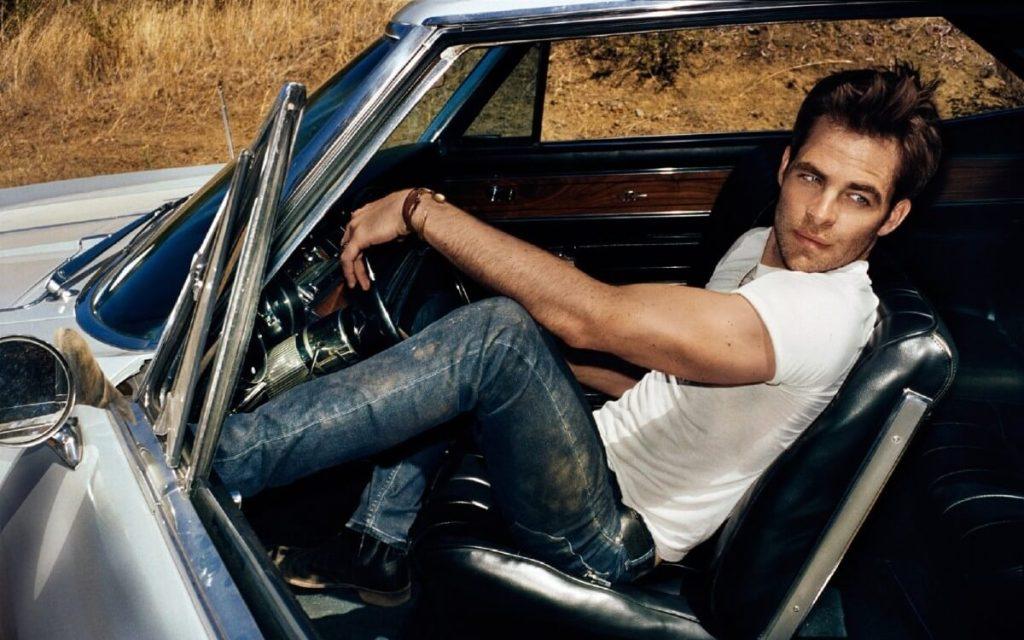
Everything, that is, except for a voice. “I need to take care of my throat tonight,” Pine says, pinching his Adam’s apple and wincing after two hours of shouting. He eyes a box of chamomile tea. “Gotta get some hot water going.”
***
Pine struts through the rear entrance of an Italian place in Los Feliz that makes a respectable meatball sandwich. He’s wearing Ray-Bans, a white Hanes T-shirt, a fully deployed American Apparel hoodie, and mesh athletic shorts. He shifts in his seat, trying to find the right position to accommodate his pulled ass muscles. “This is kind of a funny place,” he says. “The owner’s this little old lady who chain-smokes outside.”
Pine’s keen on backstory, development, roots. His own formative years took place just over the Hollywood Hills, in Studio City. He attended Oakwood School, a progressive private day school in North Hollywood, where he stood out in several sports, developing such outsize athletic confidence that he planned to walk on to his college baseball team at Cal-Berkeley. Instead he discovered a passion for the Pine family business. “I started doing a ton of theater,” he says. “Being onstage was like a drug.”
Pine’s father has a list of credits so extensive that it’s a drinking game waiting to happen. Since the 1960s, Robert Pine has appeared for the most part [on] one- or two-episode gigs, the Hollywood equivalent of day-laboring. “My father,” says Pine, “calls acting a state of permanent retirement with short spurts of work.”
“My grandmother was an actress too,” Pine says between bites of spinach salad. “In the thirties and forties she was under contract with Universal Studios. Crazy credits, lots of them. My dad was also under contract with Universal Studios. And my first film was shot on the same stage they both worked on at Universal. Crazy, right?”
More recently, the Pines have become a clan of psychotherapists Pine’s mom and sister, both reformed actors, are now mental-health professionals. “I don’t think there’s anything better than talk therapy,” Pine says. “And the combination of acting and therapy makes a whole lot of sense.”
Pine’s acting lineage provides him with a unique vantage point from which to understand the Hollywood star system and his potential place in it. Unlike the Barrymores, the Coppolas, and the Sheens, the Pines are part of the working-class community that has existed here for decades beneath all the accumulated gloss. “I’ve only been on one audition with my dad,” Pine says. “When we finished, we were standing outside my dad, myself, and this other actor my dad’s known forever. We were all talking about how it went and what we thought about the project, and I remember having this feeling, like it was a bunch of guys in Pittsburgh talking about steel or guys in Detroit talking about cars. Generations talking about the work they do.”
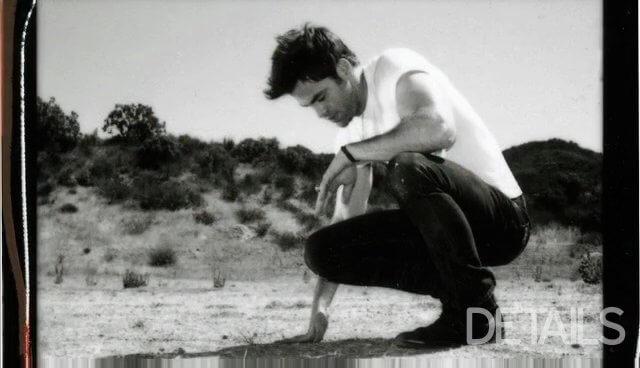
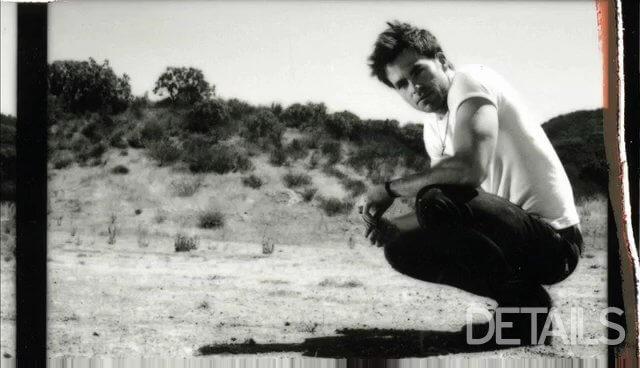
Pine is chugging water from the gallon jug he brought with him to the restaurant, still trying to make himself comfortable, crossing and uncrossing his legs, his knee cracking loudly with each move. At present, he’s seeing a chiropractor, a masseuse, and a physical therapist. “I feel prematurely old,” he says. “I’m actually having this major belated quarter-life crisis. I’m turning 30 in a couple of weeks. I’ve been thinking a lot about mortality. A lot about what I’m going to do with my life and how to enjoy it. One of the things I’m going to work on is being more spontaneous, letting go, embracing the beauty of come-what-may.”
The last time Pine ventured into the realm of spontaneity he ended up vacationing in postwar Bosnia. “You could feel the residual tension,” he says, “the vestiges of what had happened. The energy. The bones of the country.” Pine concluded that trip in Poland, watching the sun set at the Birkenau concentration camp. In a couple of days, Pine tells me, he’s giving the whole come-what-may vacation thing another try. “I really don’t know where the hell I’m going,” he says. “I think it’s going to be a solo drive somewhere. I want to do some self-assessment and decompressing. I’m serious about working on that.”
For Pine, it really is all about the work – acting is work; vacationing is work; merely being is work. He has a tendency to intellectualize everything. “My therapist was very wise to that way of hiding,” he says, “and asked me to cut it out.” But the very behaviors that thwart breakthroughs on the couch deflecting questions with questions, obsessively seeking definitions and etymologies for every clinical term have a way of impressing on the set. “I mainly remember him asking a lot of questions,” says Denzel Washington, who stars opposite Pine in Unstoppable. “Questions for the director. Questions about the script. ‘What about this?’ ‘What about that?’ He kind of woke me up. I used to ask those questions.”
Pine is even starting to question his own analytical nature. Questioning his own questionings. What’s it all worth? “I’m more cerebral than I want to be,” he says. “Sometimes I think I need to get crazy. Go to Vegas. Do some drugs. Get some hookers. Gamble it all away. And it never happens. I usually just end up at home on my couch reading.”
***
“It’s all just cognitive behavioral therapy for me. How do you change how you think to make your life work?” Pine says. “I’m single and very happy about it. It’s a good time to be single. I have a lot of friends getting married right now, having babies. But I think I’ll be more like… the George Clooney.”
Being “the George Clooney,” of course, is a learned behavior, an acquired skill, and a tough thing to pull off when you’re just turning 30. At that age even Clooney wasn’t the George Clooney – he was married and a bit player on Roseanne. Still, Pine is progressing in the cognitive-behavioral sense. It’s been over a year since he’s been photographed with Audrina Patridge, late of The Hills, and though he says he frequently asks his publicist and manager to introduce him to starlets, he does suggest that their unified response “We’re not a dating service” is, in fact, modifying his behavior.
Professionally, the evolution is further along. It’s unlikely that Pine can rest on the laurels of James Tiberius Kirk for all that much longer; with only one more Star Trek movie in the works, that may not even be possible. “Talk to me in 30 years,” Pine jokes. “By then it could be me and Shatner in Reno, working the lobby of some third-tier casino in our spandex.”
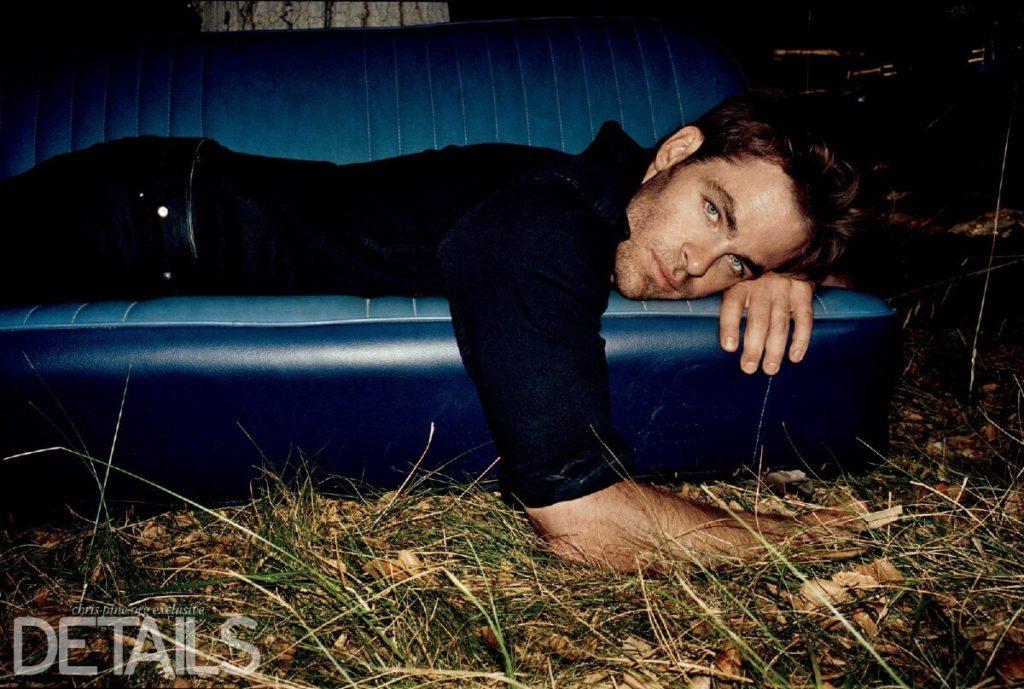
As much as Pine owned the performance, turning a Kirk who had become tired, pudgy, and campy into a swaggering man of action, he was hardly a lock to captain the USS Enterprise. “Until six weeks before shooting, we didn’t even have our Kirk,” says Star Trek’s director, J.J. Abrams. Pine had a couple of meaty theater roles under his belt but his movie work up to that point was less than must-see: a couple of parts in bubblegum blunders opposite Anne Hathaway and Lindsay Lohan. For a while it looked like Chris Pine would carry on as the guy you cast when Chad Michael Murray goes on vacation. That all changed when Abrams, on a tip a from his wife, rewatched Pine’s tape. “I thought, ‘Damn, this guy’s pretty good,’ ” Abrams recalls. “Once I saw him in person, it was clear he had it: Confidence. Vulnerability. Athleticism. Fearlessness. And a willingness to look uncool that makes him the coolest guy in the room.”
By virtue of his success as Kirk, Pine has graduated from the audition mill. “I was petrified auditioning. It was torture,” he says. “But there’s something I loved about it. I always felt like I was going into battle. People would sit in the waiting room having casual conversations, and I’d be apart from them, preparing to just destroy, envisioning the detritus of my victims around me.”
***
A week after his 30th birthday, Pine is in his kitchen in Silver Lake eating tuna salad and washing dishes. “There were no major anxiety attacks,” he reports. He ended up in Mexico for vacation, renting a beach house outside Puerto Vallarta. “I had my solo adventure,” he says, and by this he means an adventure of the mind. “It was like being on the beach in those Corona commercials,” Pine says. “Empty.” Days spent in an idyll, yes, but also devoted to reading charged political tomes from the American Empire Project by Chalmers Johnson and Andrew Bacevich.
When Pine returned, his parents cooked him a birthday dinner at their house. “A Pine staple,” he says. “Steak on the grill, heirloom tomatoes, some corn, a bottle of wine.” He’s off again soon for Vancouver to shoot This Means War with Reese Witherspoon and Inception‘s Tom Hardy. “It’s a rom-actsh-com,” Pine says. “A romantic action comedy. Or maybe it’s com-actsh-rom? Executives probably use these terms all the time. ‘We need more com-actsh-roms!’ It sounds like a Hare Krishna temple.”
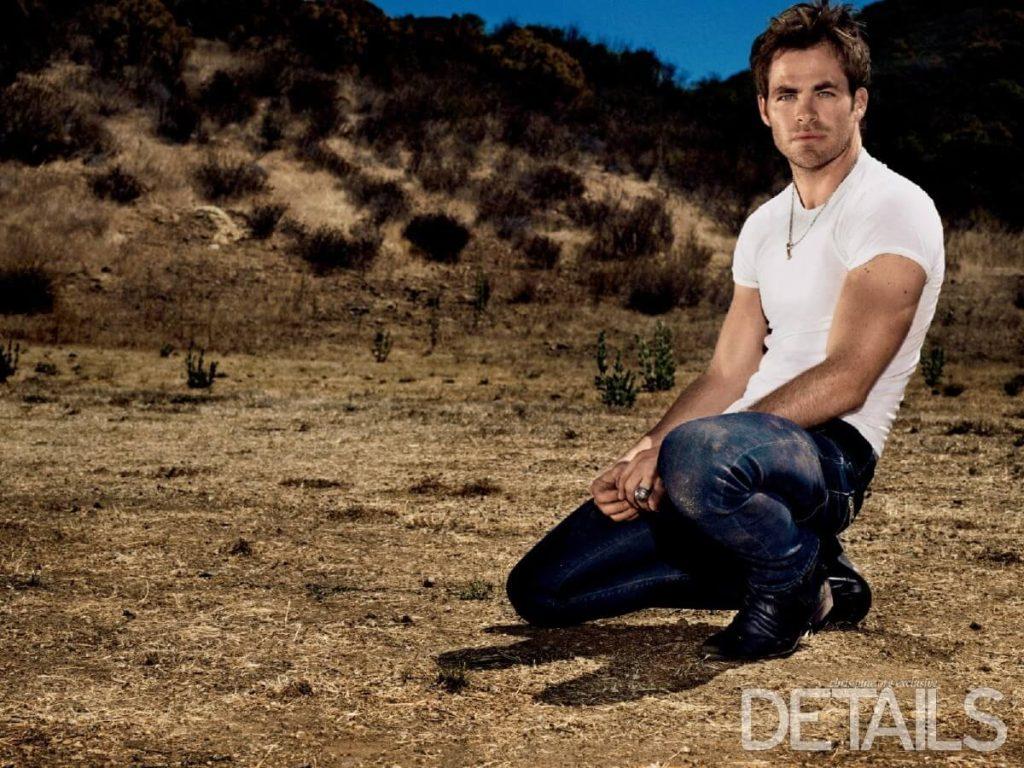
Pine sounds lighter after his break, energized. He laughs more easily too. “I think I’ve given you this picture of myself that sounds way less fun than I think it is,” he says. But he knows there’s room for improvement.
Over lunch, Pine had admitted that he never dates when he’s working. “I get in the rabbit hole,” he’d said. “I disappear. It’s how I’m programmed. Work takes up a lot of my brain space. So when I work, it’s one thing. I don’t have a lot of time to think about dating.”
As he finishes his tuna, he changes his tune. He realizes his peaking career won’t allow him the luxury of overanalyzing or compartmentalizing. “I’m learning to break the old patterns,” says Pine. “I’m 30 now. I might as well enjoy every second of it. If there’s some beautiful ladies up in Vancouver, hopefully I’ll know to get out of my head.”